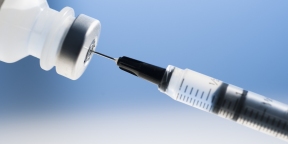
For several years, Cuba has had a promising vaccine against lung cancer, and the United States wants it. However, that’s not the only biotech invention that the Caribbean nation has up its sleeve—for several years, U.S. health experts have also been eyeing the island’s hepatitis research, Wired reports.
Recently, the Obama administration has been making moves to normalize relations with Cuba. The decision could gain access to a vaccine called Cimavax, which clinical trials show may help prevent lung cancer tumor growth associated with smoking.
According to global health experts, over the past 40 years Cuba has developed a highly successful immunology community for all sorts of diseases. Despite decades of economic sanctions, presidents Fidel and Raul Castro made biotechnology and medical research a top priority in the country.
Cuba’s first major medical accomplishment in the late 1990s was the successful production of interferon, which until recently was the top hepatitis C virus (HCV) treatment in the world. Cuban immunologists have also produced their own vaccines for meningitis B and the hepatitis B virus (HBV), as well as antibodies used for kidney transplants.
However, the United States will have to face a few barriers to accessing Cuba’s medical research. Although President Obama’s executive order has eased restrictions against medical and research equipment, Congress still has to lift the U.S. embargo against Cuba before the two countries can collaborate and ramp up research.









